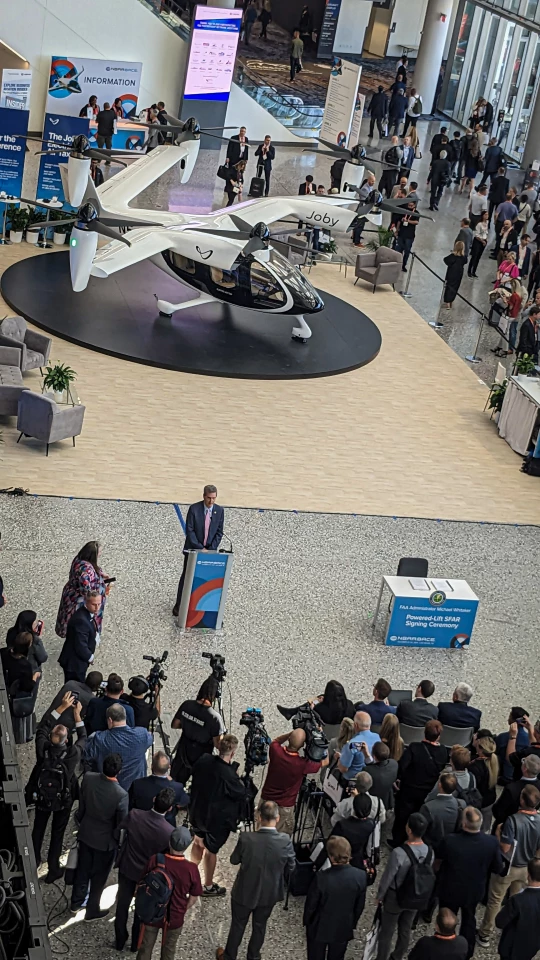In a major jump into the era of eVTOL air taxis and multicopter cargo drones, the US FAA has issued new regulations that introduce the first new aircraft category, called "power-lift" aircraft, since modern helicopters were introduced in the 1940s.
According to the FAA and the International Civil Aviation Organization (ICAO), a power-lift aircraft is "a heavier-than-air aircraft capable of vertical take-off, vertical landing, and low-speed flight, which depends principally on engine-driven lift devices or engine thrust for the lift during these flight regimes and on non-rotating aerofoils for lift during horizontal flight."
Essentially, this means aircraft that combine the characteristics of both fixed-wing planes and helicopters. In other words, they can take off, hover, and land like helicopters, yet act like fixed-winged craft in horizontal flight. As of now, these include convertiplanes, tilt-rotors, tilt-wings, rotor-wings, tail-sitters, and VSTOL aircraft like the Harrier and the F-35B Lighting II that use vector thrust, lift jets, or lift fans for vertical flight.
The military has been experimenting with such aircraft since at least as far back as the 1960s, but with modern power-lifters now moving into civilian air applications, the FAA has decided to produce new regulations regarding their design, operation, and pilot training, rather than trying to shoehorn these machines into existing categories. This announcement is especially important because the US FAA's decisions will act as a template for other regulatory agencies around the world.
"The regulation published today will ensure the US continues to play a global leadership role in the development and adoption of clean flight," said JoeBen Bevirt, Founder and CEO of eVTOL pioneer Joby Aviation. "Delivering ahead of schedule is a testament to the dedication, coordination and hard work of the rulemaking team."
Archer Aviation is also happy with the new category. "We are very pleased with the outcome of the FAA’s final powered-lift SFAR," reads a statement provided to New Atlas this morning. "This comes ahead of schedule and further solidifies our path to market by providing clear direction on what is required for the safe operation of eVTOL aircraft in the U.S... Our team will continue to work with the FAA to develop our operational plans to align to the final SFAR. We look forward to being one of the first to pioneer eVTOL aircraft operations here in the U.S."

The new regulations clarify how power-lift aircraft can be used commercially as air taxis, cargo carriers, ambulances, and in other applications. They also allow pilots to use single flight controls instead of two for training, expand operators' ability to use simulators in pilot training and testing, and lay out general pilot certification requirements. In addition, the rules apply regulations originally written for helicopters for certain phases of VTOL flight.
"The FAA will continue to prioritize the safety of our system as we work to seamlessly integrate innovative technology and operations. This final rule provides the necessary framework to allow powered lift aircraft to safely operate in our airspace," said FAA Administrator Mike Whitaker. "Powered lift aircraft are the first new category of aircraft in nearly 80 years and this historic rule will pave the way for accommodating wide-scale Advanced Air Mobility (AAM) operations in the future."
While commercial eVTOL operations are already well and truly up and running in China, the USA and Europe are leading the rest of the world down a more cautious path. US eVTOL contenders Joby, Archer and Beta Technologies are all targeting FAA type certification and first commercial fights in 2025.
Source: FAA
Thanks to our long-time friend, inventor and flying car advocate Dezso Molnar, who was on-site for the announcement and kindly sent us the images above.








